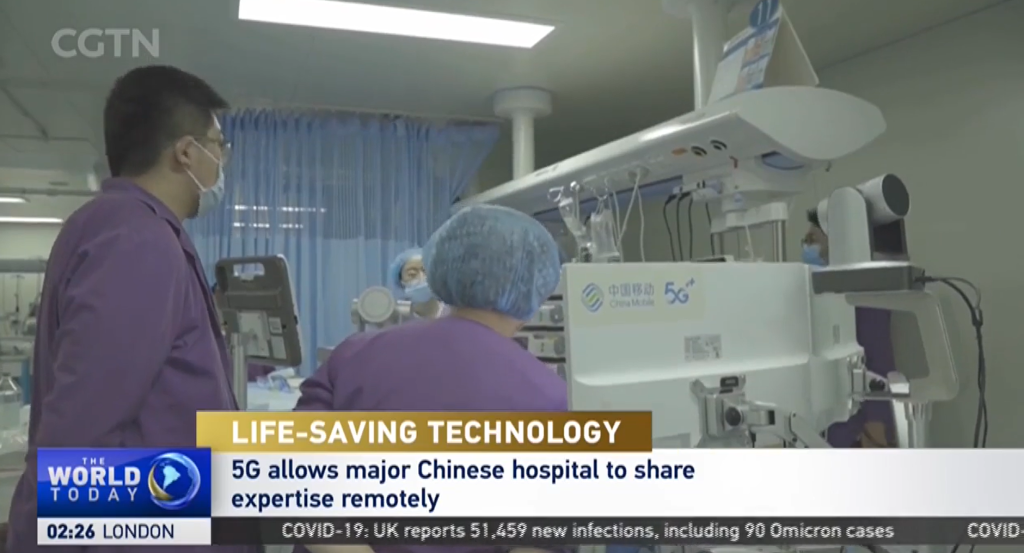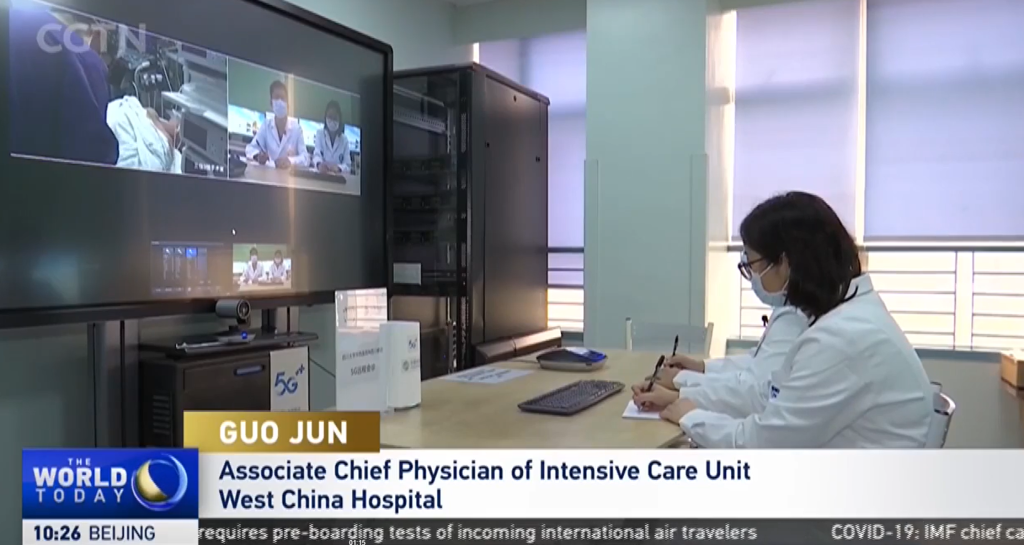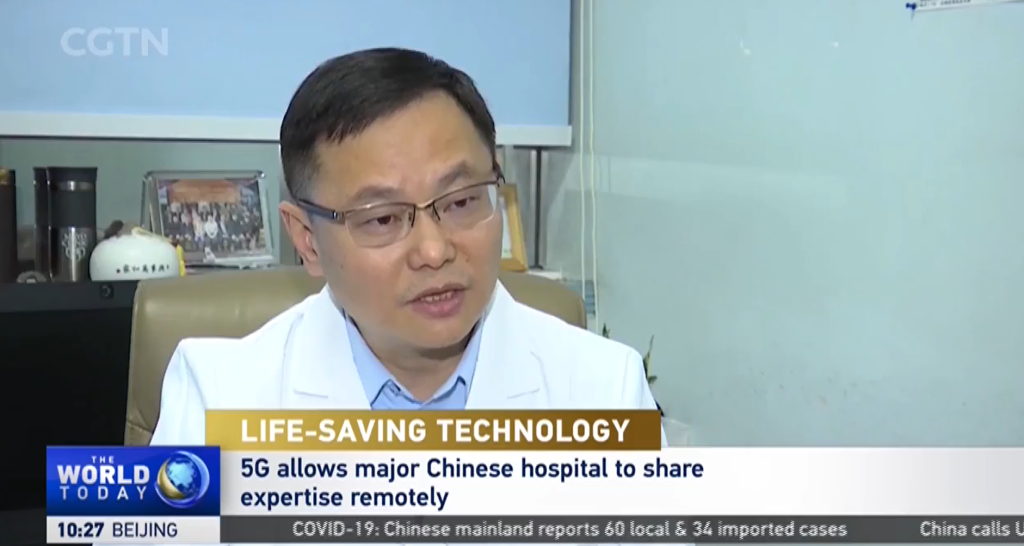
For people living in China's small towns, seeing the country's best doctors usually requires traveling long distances to cities like Beijing and Shanghai. Besides costing money, it takes time something patients with severe illnesses cannot afford.
Hospitals are used to dealing with emergencies. When it comes to critical cases, every second counts, and transferring patients to the best doctors is not always possible when treatment is needed immediately. 5G technology can help narrow that gap by making remote diagnosis and surgery possible. Experts say its growing presence in the medical community could completely shift the way health care is delivered.
West China Hospital in Chengdu is one of the leading medical institutions in the southwest. It has teamed up with China Mobile to explore how cutting-edge technology can empower the medical industry.
Two doctors are providing step-by-step instructions to surgeons 20 kilometers away, who are performing a tracheotomy on a 68-year-old patient.

Guo Jun, Associate Professor of Department of Critical Care Medicine, West China Hospital said: "Due to the low-latency characteristics of 5G, it can transmit our instructions to the medical staff operating remotely in real-time, and we can have them terminate any moves at any time without delay, which can effectively reduce risks in surgeries with a very small puncture space such as a tracheotomy."
Medical instructions aside, physicians think 5G can help with early detection of hidden health risks.

Professor Kang Yan, Director of Department of Critical Care Medicine, West China Hospital mentioned: "We've been saying build an Intensive Care Unit without 'boundaries', to detect patients with potentially severe illnesses as early as possible. The conditions of patients change rapidly, which means if the data transmitted from their end to ours gets delayed, that affects our judgment. 5G helps us to better analyze, and diagnose more accurately and quickly."
China Mobile initiated the plan to advance healthcare back in 2018, and they had the sense from the outset that 5G's high bandwidth and low latency perfectly fit the time-critical needs of Intensive Care Units.
Li Jinyao, 5G Project Manager, Chengdu Branch of China Mobile Sichuan said: "China Mobile hopes that 5G+ digitization will facilitate the balancing of resources in the medical industry, empower the grassroots hospitals in the central and western regions and improve their medical efficiency by leveraging the best medical resources of China's top-tier hospitals so that patients can get quality medical resources right at their doorstep."
Professor Kang said the pandemic has helped to facilitate remote diagnosis and treatment, and it can be replicated in other medical scenarios.
Professor Kang also said: "When we further expand it, the quality medical resources of top echelon hospitals nationwide can be rapidly applied by grassroots hospitals, and this model is not limited by time or space. Letting every critically-ill patient access the treatment they need can be become a reality."
Medical experts say in addition to 5G, other advanced technologies, such as Artificial Intelligence and Cloud Computing, can also create new, life-saving possibilities in healthcare.
This article is originally from CGTN. The link is:https://news.cgtn.com/news/2021-12-07/VHJhbnNjcmlwdDYwOTY4/index.html
From http://www.wchscu.cn/details/61935.html
